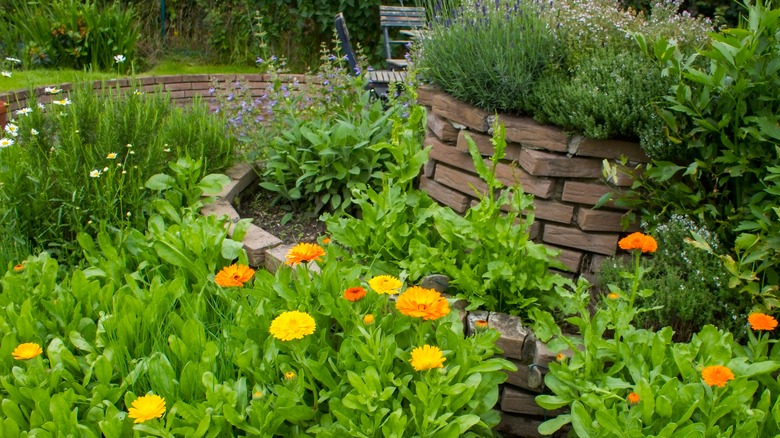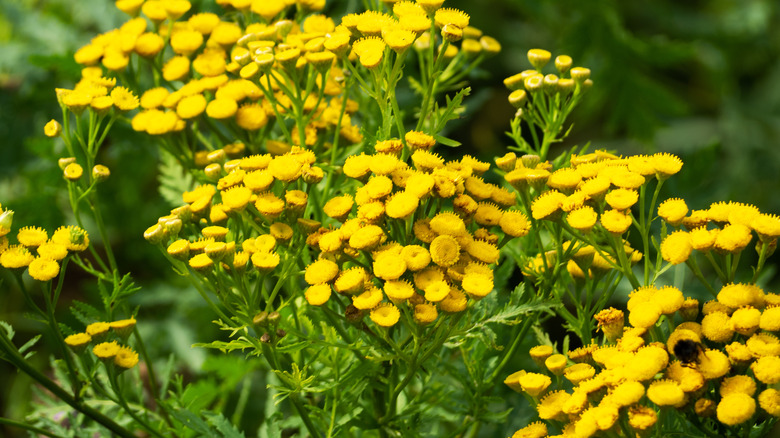The Mineral-Rich Herb You Should Think Twice About Before Adding To Your Garden
Herbs are a fascinating group of plants. There's evidence of their use by cave dwellers over 60,000 years ago and written proof on ancient Egyptian scrolls. Most people know of their use in medicine and cooking, but there are also a whole bunch of herbs that you should plant in your garden to naturally enrich the soil. Some people think common tansy (Tanacetum vulgare) should be among them, but it's worth investigating further before adding it to your veggie patch.
At first glance, tansy offers a host of valuable benefits. It helps add potassium to the soil, which is one of the key nutrients for strong plant growth. If you want to make your own DIY compost, tansy is good as an activator, helping to break down vegetable and plant matter more quickly. It has masses of pretty yellow flowers that attract bees and butterflies while repelling nuisance insects like ants and mosquitoes. What's not to like? Unfortunately, although tansy was historically used in medicine, the leaves can produce allergic reactions on contact, and the plant can be toxic to people and animals if ingested. To make matters worse, it's also highly invasive. Let's look at the problems in a bit more detail.
Planting tansy is illegal in some states
There are a number of fast-spreading herbs that can take over your garden if you're not careful, and tansy is another to add to the list. A single plant can scatter 50,000 seeds around your yard each year. Even if you compost the plants, the seeds could survive and eventually be added back into the garden. Tansy can also spread through underground root systems called rhizomes. In Minnesota, it's listed as a noxious weed that can cause harm to humans, pets, livestock, property, and the environment, and its sale or propagation is banned. Colorado and Montana are among a number of other states with full or partial bans against common tansy.
Tansy can irritate the skin or cause contact dermatitis, so if you do need to handle it, wear gloves. It can also be toxic if eaten. When used as an herb in food, it is likely safe, but the plant contains a poisonous chemical called thujone. When used as an oil or a tea, it can cause vomiting, diarrhea, kidney or liver damage, and could even be lethal. There are lots of herbs that can be beneficial to your health and that of your garden, but you'll definitely want to think twice about adding tansy.

